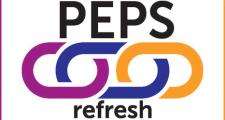Reframing social work practice education: practice educators’ perceptions of the Professional Capabilities Framework (PCF)
Background to research
Research data was collected and analysed incrementally between each stage of the study.
- Awarded the Professional Doctorate in June 2018 by Coventry University and attended the Graduation Ceremony at BNU in September 2018
- A Journal Article was submitted to The Journal of Social Work Practice in November 2019 based on the research. This has been reviewed and was published online in April 2020
- The topic was selected due to my role at the university as Social Work Practice Lead and my experiences of Practice Educators assessing students using the new PCF framework (2014) and has continued to have relevance to my ongoing work with BASW.
- The research took 18 months to complete during a time of significant social work reform.
Key findings
- Practice educators were positive about PCF and found it a better fit with the value-based nature of social work, although some students struggled to reflect more deeply on their learning. PCF was seen to be more time consuming, and the induction process provided to become familiar with it had been rushed
- The complexity of the practice educator role was often discussed. The multi-layered remit to mentor, support, educate and assess learners requires a difficult balance and judgement to be made. The importance of the relationship with the learner was also seen to be key and often influenced the assessment outcome.
- Participants referred to the gaps in support provided for them during the time of transition from one assessment process to another and the limited support going forward. Independent practice educators referred to needing more support from HEI’s and on-site practice educators often mentioned heavy workloads taking priority. Those receiving the best support were those practice educator trainees on the PEPS PE training.
- Another key theme was the impact of change and future aspirations of practice educator participants. There were concerns about how sustainable PCF would be due to new social work professional and regulatory standards arising from the ongoing government review and continuing concerns about social work education being fit for purpose.
- Participants also saw themselves as agents for change and relished the new opportunities arising for more diversity in delivering social work education and more scope to contribute to post-qualifying support and assessment for new social workers as part of CPD.
Relevant Work Carried out Since the Research
PCF has been used across HEI’s since September 2014. In July 2018 BASW England completed the PCF Refresh which is now in full use. Consultation with social work practitioners, educators, people with lived experience and employers resulted in a framework with highlighted values, clearer terminology and closer alignment with other social work standards (Forest, 2016). In 2023 research and a concluding report were commissioned by BASW for a full-scale review of PCF which is currently in progress.
As part of the review of PCF it became increasingly important to consider the positioning of practice educators within social work education, the fragmented support infrastructure available and the need to champion practice education to relocate to a central position within the social work profession (Schaub and Dalrymple, 2013).
The Practice Education Professional Standards (PEPS), the practice guide for practice educator training, were reviewed by BASW following evaluation of the national consultation feedback in 2017. The PEPS standards and guidance were redrafted after further consultation through webinars and by establishing a national stakeholder group. The PEPS was then reviewed again in 2022 by BASW and is currently in use by education providers and employers. The PCF is central to the PEPS assessment process for social work students and trainee practice educators.
There are likely to be more changes as economic and political constraints influence the future of social work (Garrett, 2014). The social work regulators Social Work England (SWE) have produced professional and educational standards with an emphasis on conduct and proficiency and are currently working on knowledge, skills and behaviour statements for students to meet before qualifying as social workers.
Recommendations:
- More practice-based social work research to raise the profile of practice education
- The need to champion practice educators and the scope for a wider role within social work and continuing professional development initiatives for newly qualified and experienced social workers.
- To seek movement in the ‘top-down’ governmental scrutiny of the social work profession and increase professional and public confidence in social work (BASW 20/20 vision).
- To seek a national steer for social work and practice education and strengthen the quality assurance standards for social work practice.
References
•Bellinger, A. and Elliott, T. (2011) ‘What are you looking at?’. The Potential of Appreciative Inquiry as a Research Approach for Social Work’. British Journal of Social Work. 41, pp. 708-725.
•Cooperrider, D. and McQuaid, M. (2012) ‘The Positive Arc of Systemic Strengths: How Appreciative Inquiry and Sustainable Designing can bring out the Best in Human Systems’. JCC 46: Green Leaf Publishing.
•Forest, J. (2016) DfE and DH policy- Regulating Social Workers. CSN Policy Briefing –correspondence@lgu.org.uk. (Accessed on: 12th September 2016).
•Garrett, M. (2014) ‘Re-enchanting social work? The emerging ‘spirit’ of social work in an age of economic crisis’. British Journal of Social Work, 46, pp.1-19.
•Hamel, G. (2000) ‘Leading the Revolution’. Boston: Harvard Business School Press.
•McCulloch, T. and Taylor, S. (2018) ‘Becoming a social worker: Realising a Shared Approach to Professional Learning?’ British Journal of Social Work, 40, pp. 983-999.
•Schaub, J and Dalrymple, R. (2013) ‘Surveillance and Silence’. New considerations assessing difficult social work placements. Journal of Practice Teaching and Learning, 11 (3) pp. 79-97.


